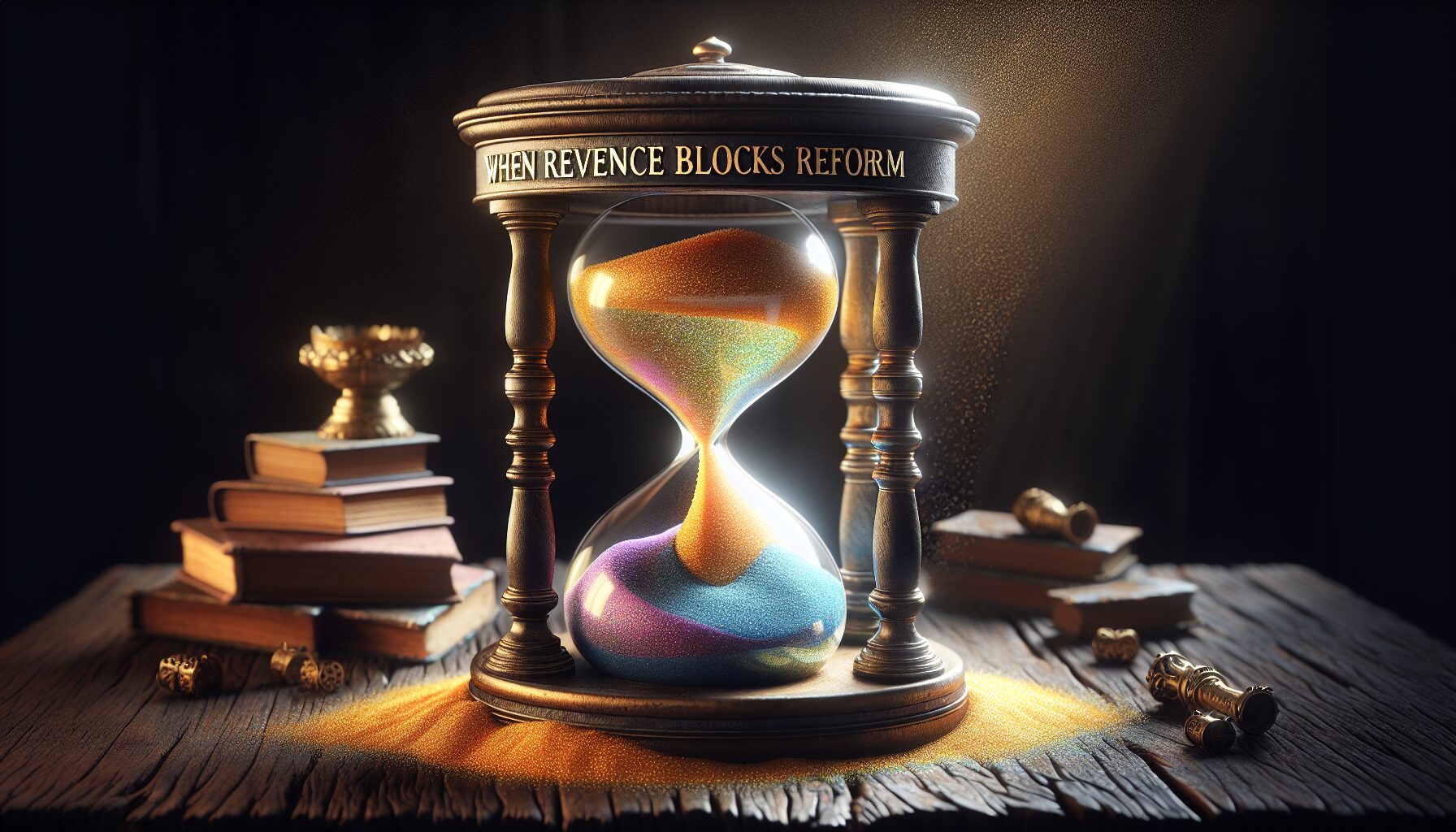Reverence is often seen as a virtue. It provides a deep respect and admiration, often for figures of authority, tradition, or beliefs. Nonetheless, when these sentiments morph into excessive piety, they can act as significant roadblocks for much-needed reforms. Excessive reverence not only stifles progress but can also perpetuate outdated systems and beliefs that need re-evaluation. This article examines how deifying ideas or figures can impede growth and change.
The Double-Edged Sword of Reverence
Reverence becomes dangerous when it closes the door to questioning and critical thinking. As philosopher Bertrand Russell once said,
“The whole problem with the world is that fools and fanatics are always so certain of themselves, but wiser people so full of doubts.”
Excessive reverence falls into the former camp, where certainty and devotion overshadow understanding and progress.
Institutions Held Hostage by Excessive Piety
Traditions and institutions that are revered unconditionally can become stagnant. This is particularly evident in religious organizations, where reform is often resisted in the name of preserving sanctity. Pope Francis, in his efforts for reform within the Catholic Church, remarked,
“Tradition is the guarantee of the future, and not the keeper of the ashes,”
urging a balance between honoring traditions and embracing change.
The Sociopolitical Landscape
Politically, excessive reverence for founding texts or figures can hinder necessary evolution. In some democracies, constitutional reforms become nearly impossible due to an almost sacred regard for historical documents. Former U.S. Supreme Court Justice Anthony Kennedy once implied the need for evolution in law by stating, “The Constitution does not belong to a bunch of judges and lawyers. It belongs to you.”
Finding a Balance
Recognizing the difference between meaningful respect and blind reverence is key. While it is important to respect the pillars of society—whether they be politicians, religious leaders, or foundational texts—understanding that they are not infallible opens avenues for healthy critique and improvement.
Excessive piety erases the space for innovation. In order for societies to grow and thrive, a balanced approach is needed, one that honors traditions but is not beholden to them. By asking critical questions and encouraging open dialogue, societies can foster environments that respect history while charting courses for the future.
In conclusion, while reverence can provide a foundation for unity and moral guidance, its excessive form can also be a barrier to the dynamism necessary in any living society. As Albert Einstein said,
“The important thing is not to stop questioning. Curiosity has its own reason for existing.”
